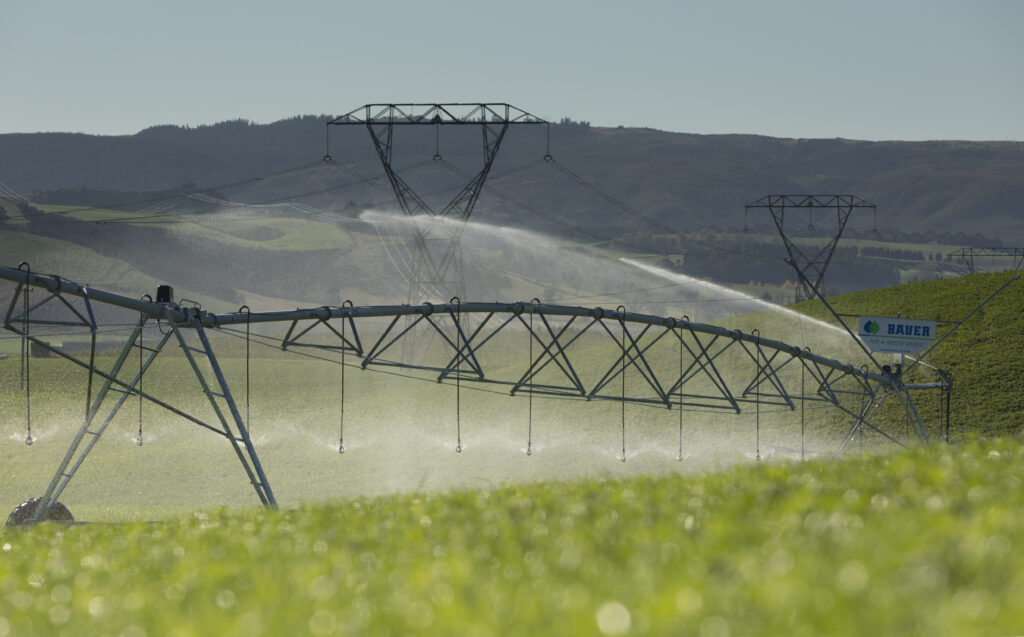A recent High Court decision that overturned a nitrogen discharge consent has left an unwelcome question mark hanging over the granting of future discharge consents on the Canterbury Plains.
Federated Farmers vice president Colin Hurst says it’s yet another reason why major overhaul of the Resource Management Act (RMA) can’t come soon enough.
“The court’s decision directing reconsideration of a discharge consent granted by the Canterbury Regional Council is nothing short of an own goal.
“It completely undermines the pragmatic approach Environment Canterbury have been taking in working with farmers to reduce contaminant discharges over time.
“Now those farmers are stuck in a legal quagmire, with huge uncertainty hanging over them,” Hurst says.
Ashburton Lyndhurst Irrigation Ltd is a co-operatively owned scheme that supplies water to 228 local farmers, who collectively farm 32,000ha in Mid-Canterbury.
In 2014 the scheme was granted one of Canterbury’s first nutrient discharge consents, and a renewed consent allowing management of additional farms to cover a total of 177,000ha was granted by Environment Canterbury in 2021.
An advocacy group, Environmental Law Initiative, sought a judicial review of the decision in the High Court last year.
When granting the consent, the commissioner imposed consent conditions that would result in a significant reduction in nitrogen discharges over a 10-year period.
As well as implementation of good management practice and extensive environmental monitoring, the consent required the irrigation scheme to reduce nitrogen discharges by 10% from the 2020 nitrogen leaching load by 1 January 2025, and by 20% by 1 January 2030.
The commissioner relied on the consent conditions to achieve a material improvement to surface water and ground water over the term of the consent.
“The crux of this issue is differing opinions on how the RMA should be applied in practice,” Hurst says.
Environmental Law Initiative argued the law prevents the council from granting a consent for the discharge of contaminants if it’s likely to have significant adverse effects.
However, the council took a more pragmatic approach that there is an exception where water quality will be within a desired range at the conclusion of the consent, Hurst says.

“This approach would better provide for the sustainable management of resources, including a staged reduction of N discharges and corresponding improvement of ecosystem health in the receiving environment over a short period of time.
“Unfortunately, the Judge sided with the Environmental Law Initiative.”
Hurst says this highlights the confusion within the RMA where the direct application N is a permitted activity, but the downstream impacts of N discharges may be prohibited. These two positions cannot easily be reconciled, he says.
In a second point of appeal, the Judge held a failure to properly consider the requirements of relevant coastal policy statement in respect of the discharge into Ashburton lagoon was “an error in law”.
This was despite the farming area not being within the coastal area and Canterbury Regional Council having already considered the coastal policy statement when it notified the Plan Change to manage nutrient discharges.
The irrigation scheme’s chief executive Rebecca Whillans said local farmers were deeply disappointed with the High Court’s ruling.
“We were pleased with the way Environment Canterbury defended their decision and we’re working closely with them as we consider our next steps.”
She said all the scheme’s shareholder farmers have had audited farm environment plans in place for a long time now.
“The renewed consent granted in 2021 enabled Mid-Canterbury farmers to continue to pro-actively manage the impacts of their farming operations and was an advancement of the consent from 2014.”
The irrigation scheme can continue to operate under the 2021 consent renewal conditions while it is being reconsidered.
Either Ashburton Lyndhurst Irrigation or Canterbury Regional Council may appeal the decision. Even if that doesn’t happen, the irrigation company will still need to fund a second hearing on its resource consent application.
Other councils and irrigation companies around the country, but particularly in Canterbury, will be watching this case with interest, Hurst says.
“The court’s ruling will have huge implications for other schemes around how the RMA will be interpreted moving forward.
“It’s very unsettling for those farmers affected, particularly when they’ve made plans and investment decisions based on a consent that was renewed until 2030.
“If this isn’t something the Government are already looking at as part of their RMA reforms, it should be now,” Hurst concluded.










